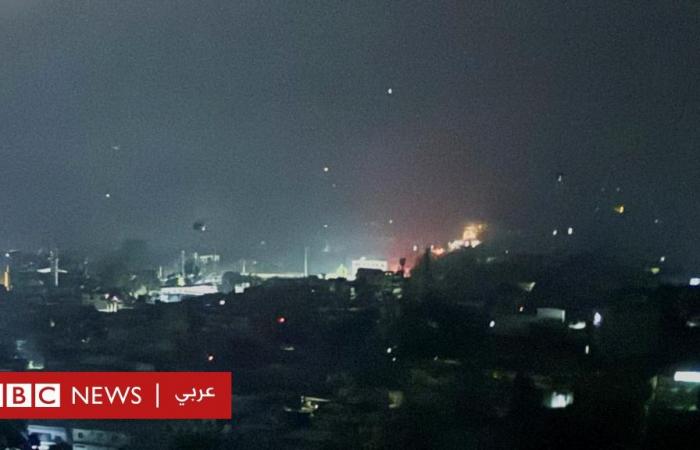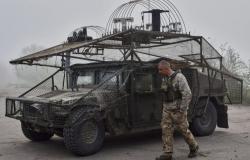

Photo released, Reuters
last update 41 minutes ago
Three civilians, including a child, were killed in an Indian missile shelling on Pakistan at dawn on Wednesday, according to the Pakistani Defense Secretary, while India confirmed the implementation of “accurate strikes” on sites it said included “terrorist infrastructure” in Pakistan.
The government said in a statement: “A short time ago, the Indian forces launched an operation (…) during which they struck an infrastructure in Pakistan and the Kashmir region, where planning and leading terrorist attacks against India took place,” the government said in a statement.
The Indian government said: “Our process was concentrated, studied and non -escalatory in its nature. Our movements were calculated and did not involve any escalation.”
For his part, the Pakistani army vowed to respond to “air strikes” carried out by India in “three regions” in Pakistan, according to what a spokesman announced on Tuesday night, pointing to the targeting of two cities in the Kashmir part, which is controlled by Islamabad and a third city in the Punjab region adjacent to India.
The spokesman added: “All our air weapons aircraft are in the air. This is a shameful attack and cowardly carried out from within the Indian airspace.”
“We will respond in the right time and place,” said army spokesman, General Ahmed Chaudhry.
Islamabad announced that the Pakistani National Security Committee, the body consisting of senior civil and military officials that only heal in exceptional circumstances, will meet Wednesday at 05:00 GMT in the midst of military escalation with India.
The Pakistani Minister of Information, Atallah Tarar, said that Prime Minister Shahbaz Sharif “called on the National Security Committee to a meeting at ten in the morning.”
For his part, the Pakistani Minister of Defense, Khawaja Asif, confirmed that the Indian strikes targeted “civilian areas, not terrorist camps” as Naidhi claims.
“India has violated the Pakistani airspace and fired missiles towards populated areas, and claiming that it was targeting unfounded terrorist camps.”
The Indian army commented in a post on the X platform: “Justice has been achieved,” attached it to the name “Cindy Operation”.
This page contains content from the X. Your approval is required before displaying any materials because it may include correlation files (cookies) and other technical tools. You may prefer to see the X -site correlation policy and privacy policy before approval. To view the content, choose “approval and completion”Accept and continue
End x sharing
US President Donald Trump expressed his hope that the fighting between India and Pakistan would stop “very quickly”, in a comment on the escalating tensions between the two nuclear neighborhoods in South Asia.
-“It is unfortunate,” Trump told reporters at the oval office. “As you know, they were fighting for many decades and centuries. In fact, if you really think about it, I only hope that this would stop very quickly,” stressing that he was just aware of the news of the fight against the two countries.
In the context, the United Nations Secretary -General, Antonio Guterres, said on Tuesday that “the world cannot bear a military confrontation” between India and Pakistan.
A spokesman for the Secretary -General of the United Nations, Stephen Dujarric, said in a statement that Guterres shows his “great concern” over the current escalation and “calls both countries to exercise the utmost military restraint.”
Reuters news agency reported that there are reports of intense shelling and resounding explosions in the border areas of the Pakistani administration.
It is reported that the relations between India and Pakistan deteriorated sharply in the wake of a deadly armed attack on tourists in Kashmir last April. India accuses Pakistan of supporting terrorism across the border, which is categorically denied by Islamabad.
Chaos and panic among the population

Photo released, Indian Right Wing Community
Huge explosions were heard earlier today, Tuesday, in the city of Muzaffar Abad, in the Pakistani part of Kashmir, causing panic and chaos among the locals. According to the testimonies of some of the population who spoke to the BBC, they lived difficult moments after the attack.
“I was asleep when the first explosion shook my home. I rushed to the streets, and I saw others to do the same. Before we could accommodate what was happening, more missiles fell, which increased chaos,” said Muhammad Waheed, a resident of the area adjacent to the Bilal Mosque, who was reported to be among the sites that were bombed.
Waheed added that dozens of people were injured in the attack and were taken to a hospital about 25 km. He pointed out that the children were crying, and women are running everywhere in search of safety, while a state of terror was controlling everyone. He emphasized that people were fleeing from their homes, and that the feelings of suspicion were overwhelmed by everyone because of what happened.
Waheed, who confirmed that the security forces were present at the scene of the accident, expressed his surprise at targeting the mosque, saying: “He was a normal mosque in the street in which we pray five times a day, and we did not see any suspicious activity around him.”
The authorities continue to investigate the circumstances of the attack, while the situation remains tense in the area.
What led to Indian strikes?
The air strikes carried out by India came in response to a bloody armed attack that occurred on April 22 in the tourist town of Bahgham, located in the part run by India from the Kashmir region. The attack killed at least 26 people, most of them tourists.
According to the Indian authorities, gunmen opened fire on a group of visitors while they were in the Baysaran area, a mountainous meadow located about five kilometers from Bahmam. Some survivors said that the gunmen “targeted men of the Hindu religion in particular.”
While Pakistan denied any relationship with the attack, the Indian police confirmed that two of the four suspects in carrying out the operation had Pakistani citizenship. The Indian security forces are still continuing to chase the militants.
The escalation was not limited to air strikes. India and Pakistan announced a series of reprisals, which included the closure of some border crossings and the suspension of an agreement to share river water. The soldiers also exchanged light weapons gunfire at several border points.
Indian Prime Minister Narendra Modi had previously pledged to pursue the extent of the attacks “until the end of the Earth.”







